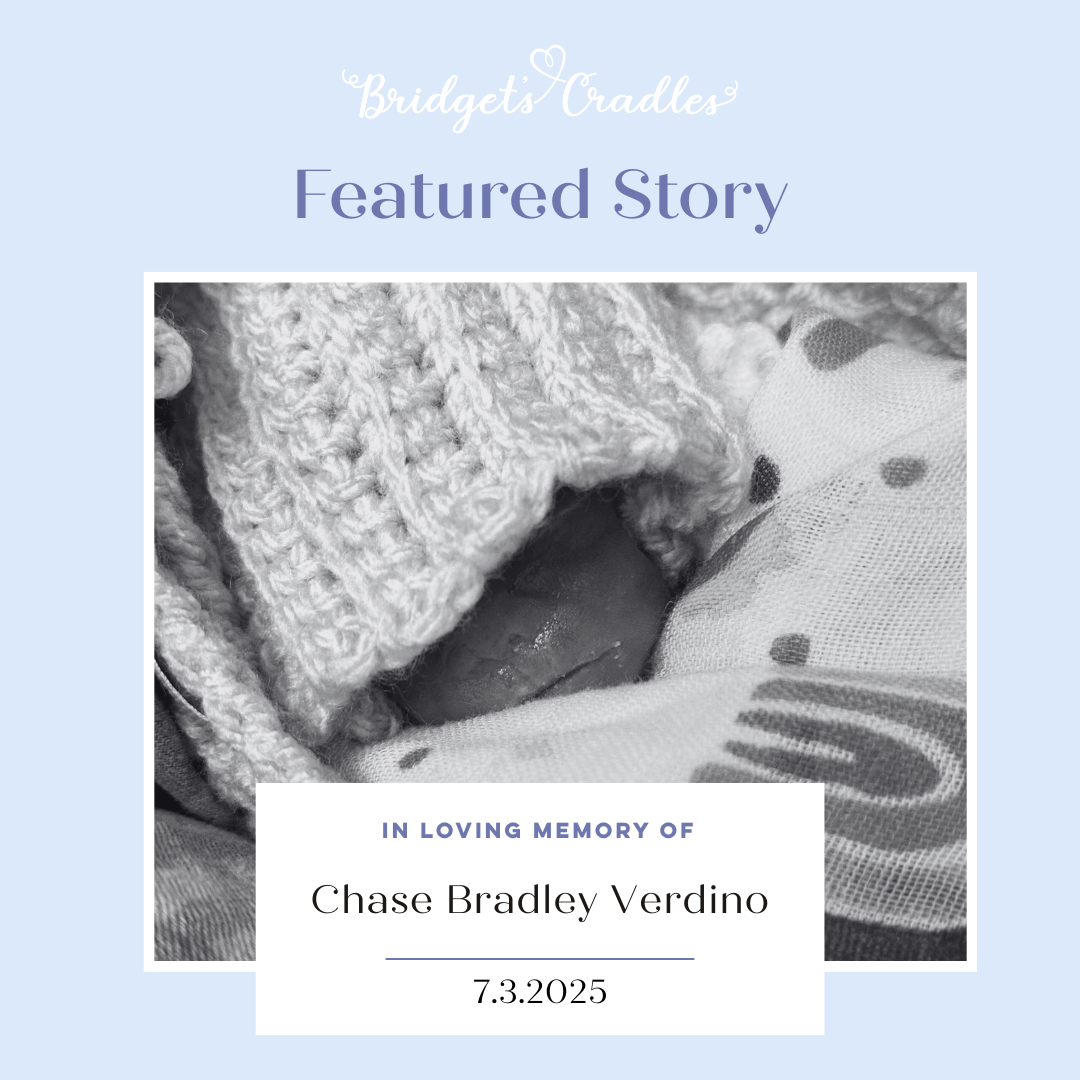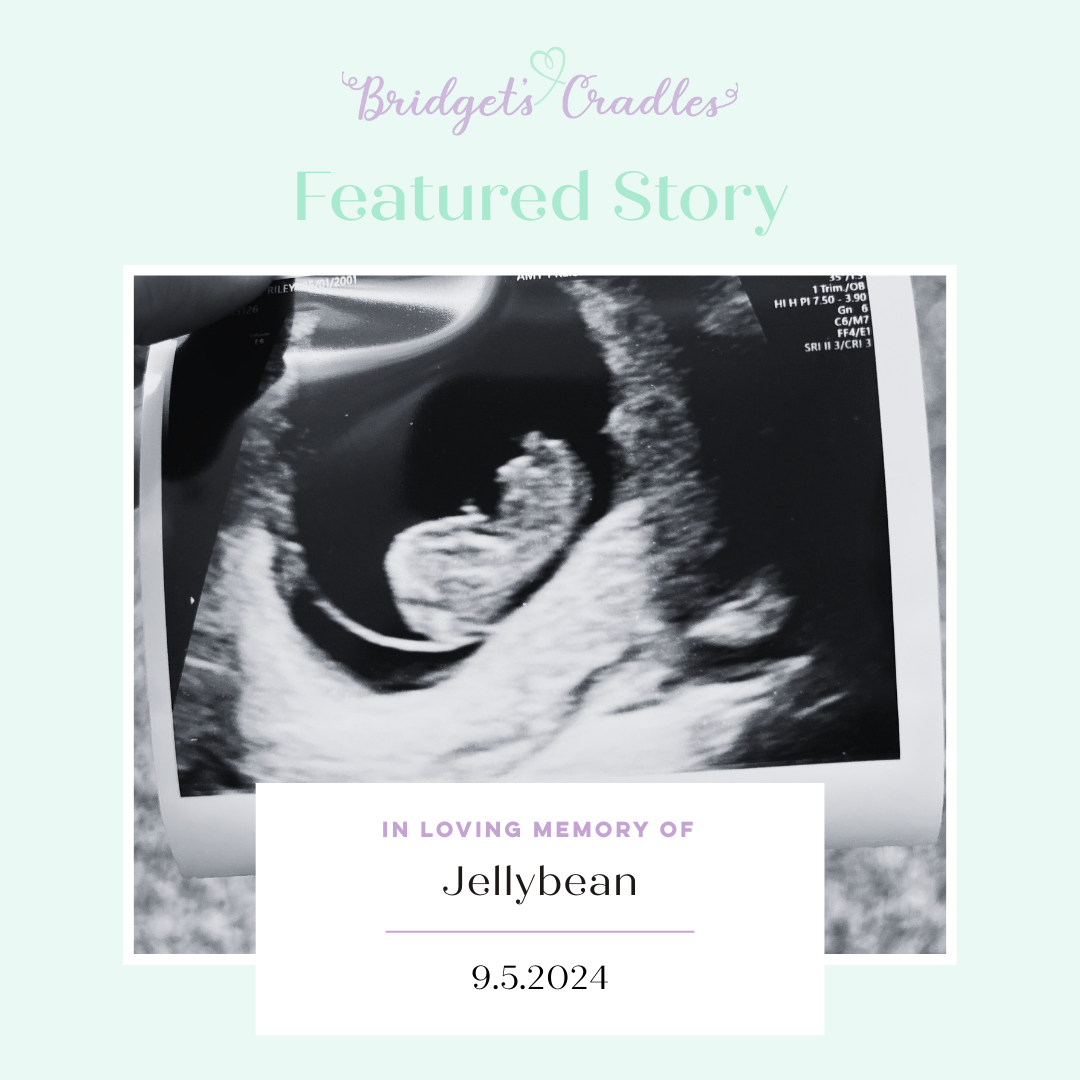Wave of Light | October 15, 2025 Register Now
registration open!
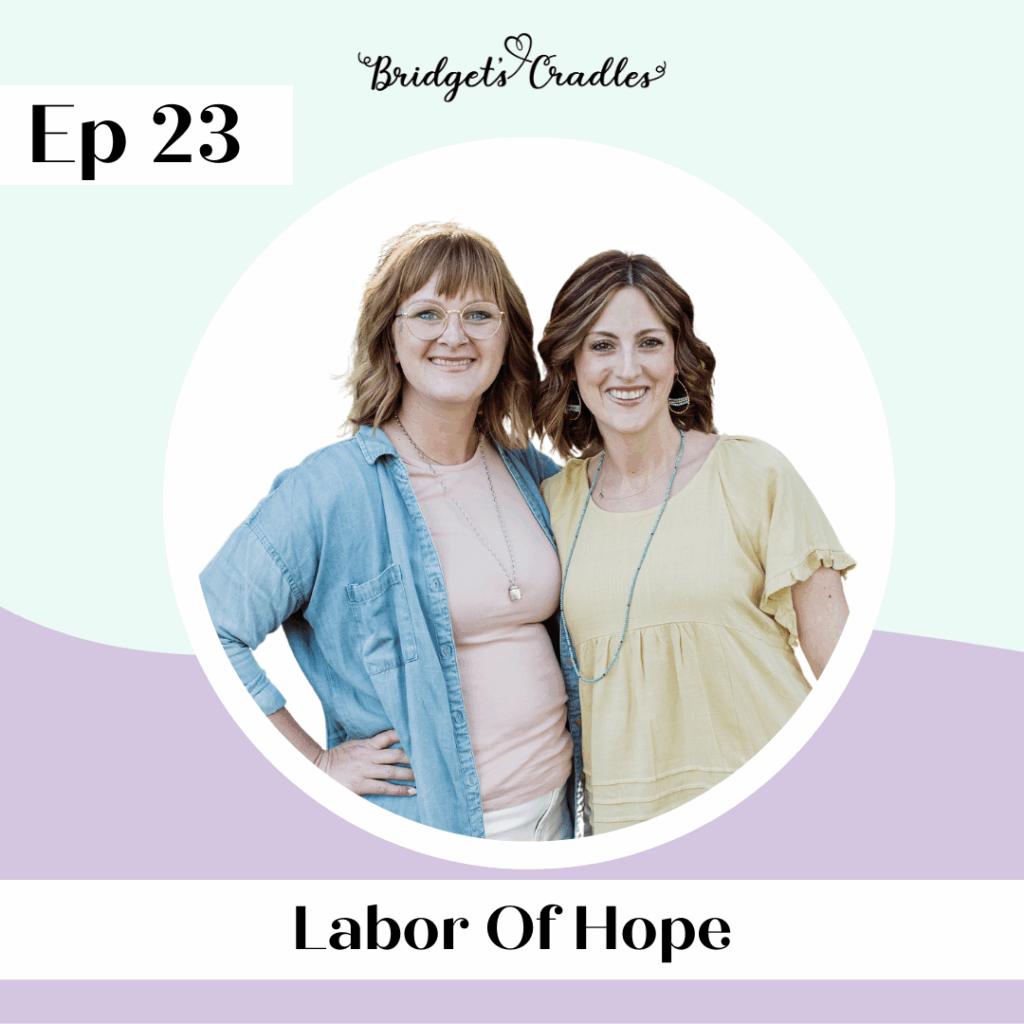
Join us for a conversation with Ryley Chestnut and Hayley Martinez from Labor of Hope. They are both certified bereavement doulas who have lost children due to a life-limiting condition in pregnancy.
Labor of Hope is an organization that exists to value every life and support couples who have been given a life-limiting diagnosis in pregnancy. Ryley and Hayley advocate for choosing life and making memories with your child. From their own heartbreaking experience, they share their grief and healing journey.
In this episode, we discussed:
Choosing life and carrying a baby with a life-limiting diagnosis
Cherishing moments in pregnancy even with a grim prognosis
Leaning on the local church and believers
Grief during the first year after loss
Why we experience fresh grief at the three-month mark
God’s grace for each day
The role of bereavement doulas
Choices at the hospital and advocating for your decisions
Having a birth plan and informed consent at the hospital
How to create memories during pregnancy and at birth
All about Labor of Hope and what they do
Sharing our babies’ stories and celebrating every life
Full transcript below.
MEET OUR GUESTS
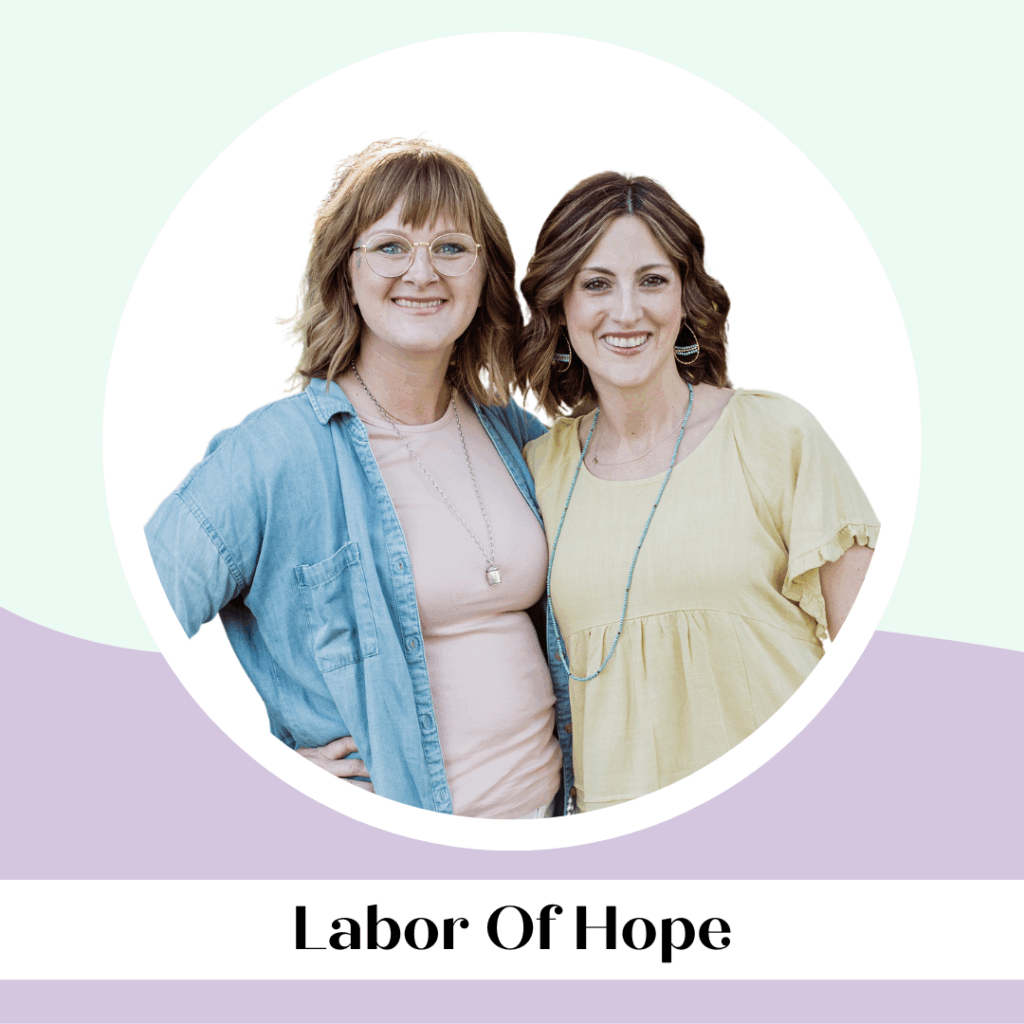
Ryley Chestnut and Hayley Martinez are bereaved mothers who serve with the nonprofit ministry based in Texas called Labor of Hope. Ryley is their Director of Outreach and Hayley is their Director of Development.
They are both certified bereavement doulas who lost children due to a life-limiting condition in pregnancy. Through their heartbreak and pain, they serve families who have walked the same journey they have.
Connect with Labor of Hope:
Facebook: /laborofhope
Instagram: @laborofhope
Web: www.laborofhope.org
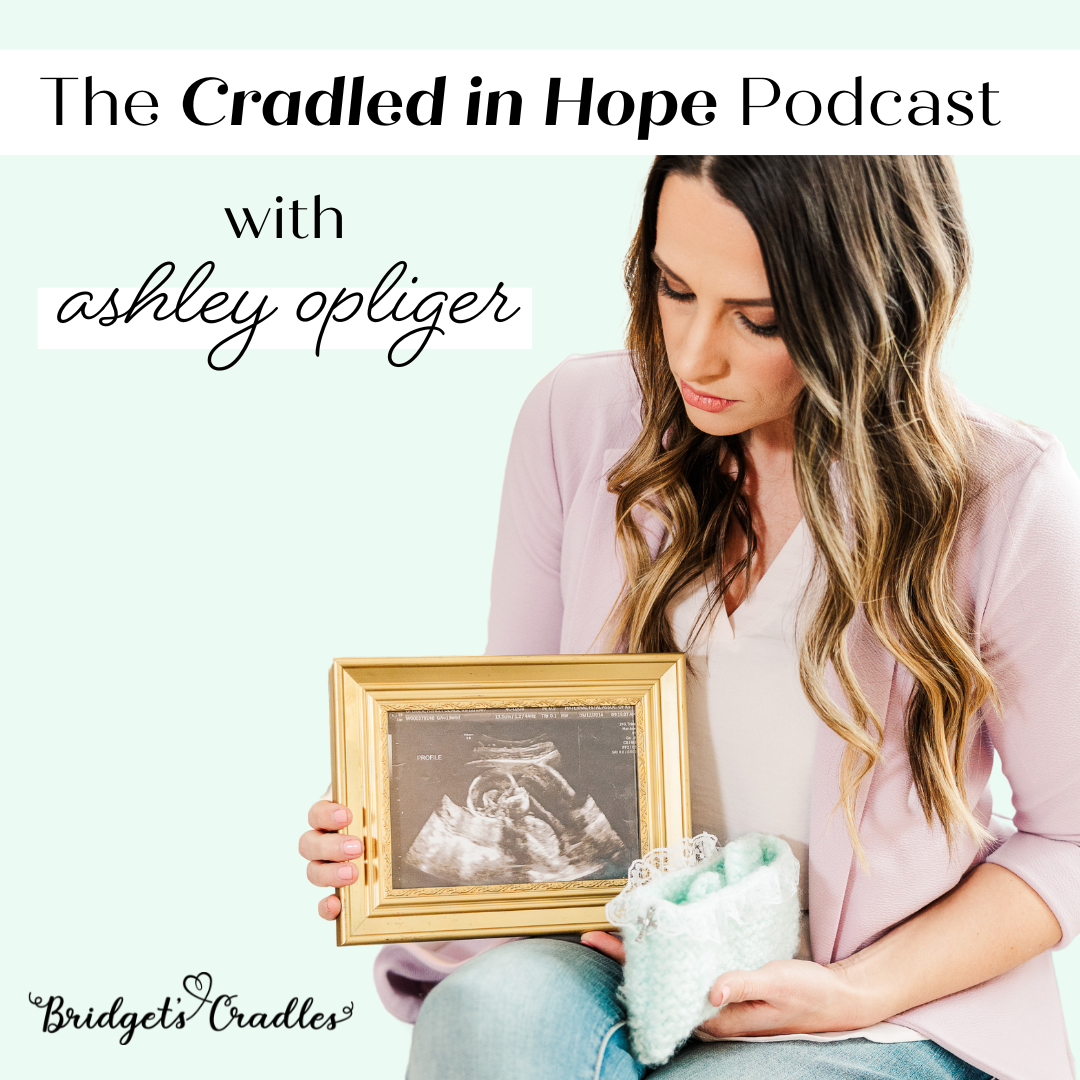
New episodes will be shared on the 1st of every month. Don’t miss a single episode…subscribe wherever you podcast!
Please also leave a review to help spread the message of hope with other grieving mommas!

MEET OUR HOST
Ashley Opliger is the Executive Director of Bridget’s Cradles, a nonprofit organization based in Wichita, Kansas that donates cradles to over 1,600 hospitals in all 50 states and comforts over 30,000 bereaved families a year.
Ashley is married to Matt and they have three children: Bridget (in Heaven), and two sons. She is a follower of Christ who desires to share the hope of Heaven with families grieving the loss of a baby.
Connect with Ashley:
Facebook /ashleyopliger
Instagram @ashleyopliger
Pinterest /ashleyopliger
www.ashleyopliger.com
Follow Bridget’s Cradles:
Facebook /bridgetscradles
Instagram @bridgetscradles
Pinterest /bridgetscradles
www.bridgetscradles.com
JOIN OUR CRADLED IN HOPE COMMUNITY FOR GRIEVING MOMS
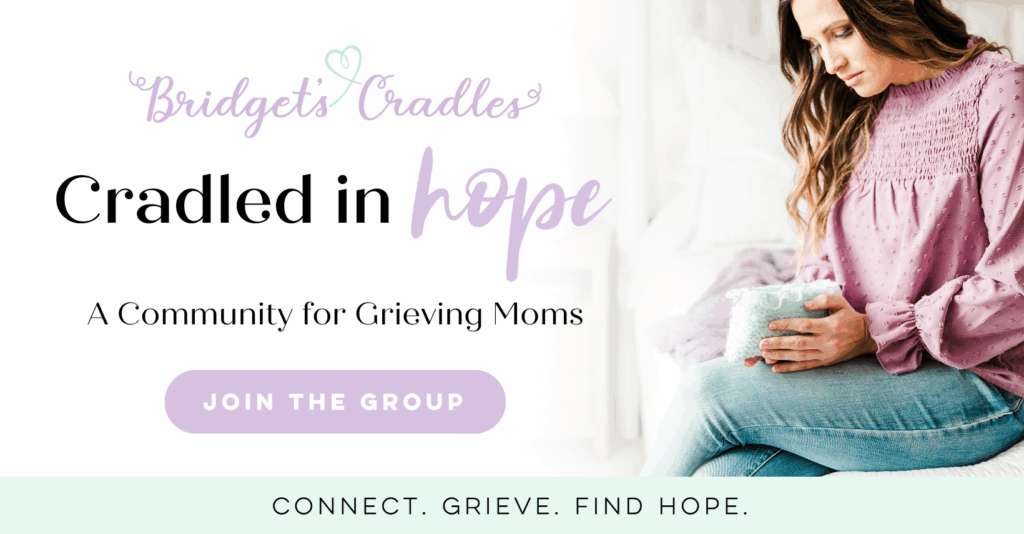
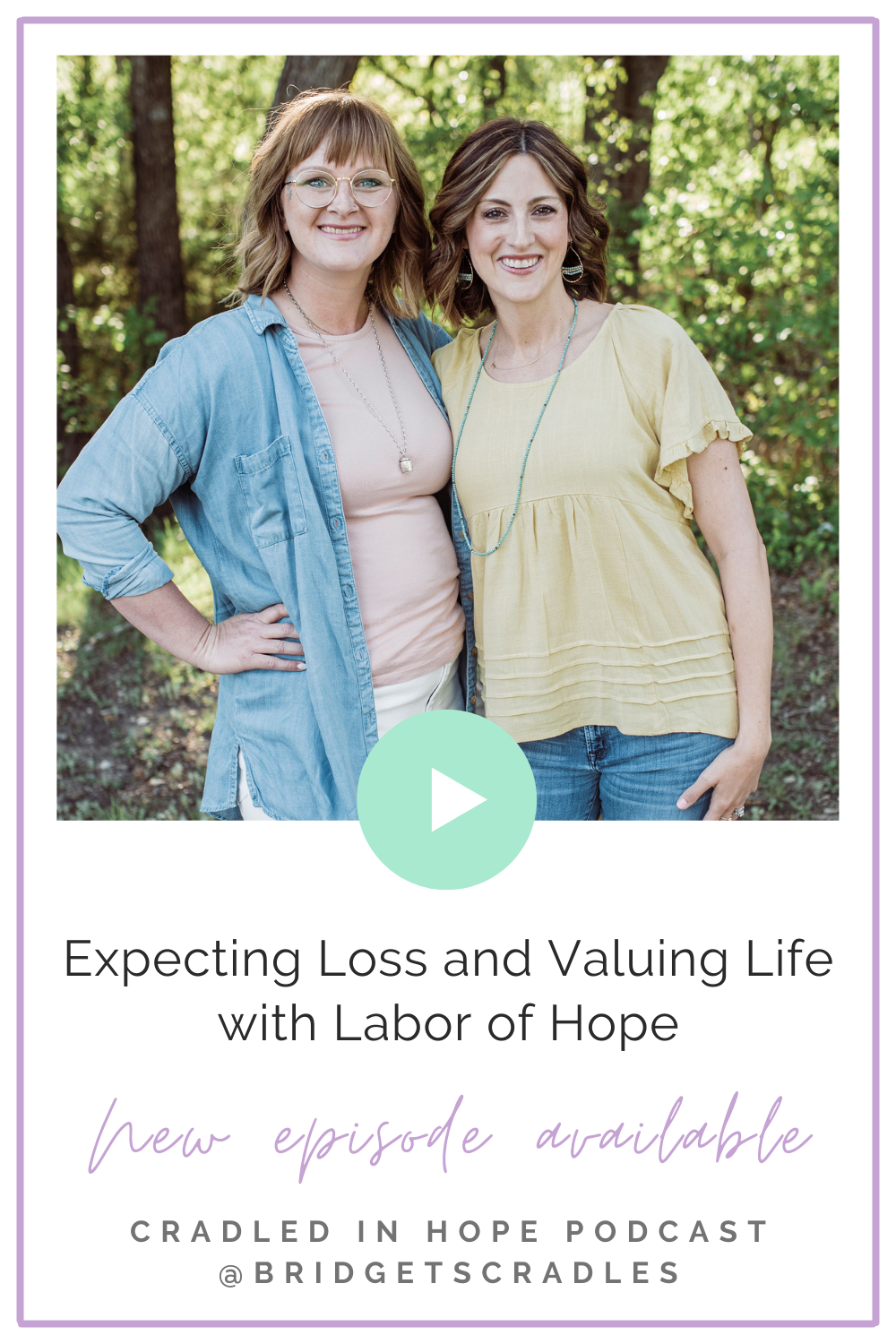
EPISODE TRANSCRIPT
Episode 23: Expecting Loss and Valuing Life with Labor of Hope
Ashley Opliger: [00:00:00] You’re listening to the Cradled in Hope Podcast on the Edifi Podcast Network. I’m your host, Ashley Opliger. I’m a wife, mom, and follower of Christ who founded Bridget’s Cradles, a nonprofit ministry in memory of my daughter, Bridget, who was stillborn at 24 weeks.
Cradled in Hope is a Gospel-focused podcast for grieving moms to find comfort, hope, and healing after the loss of a baby. We want this to be a safe place for your broken heart to land.
Here, we are going to trust God’s promise to heal our hearts, restore our joy, and use our grief for good. With faith in Jesus and eyes fixed on Heaven, we do not have to grieve without hope. We believe that Jesus cradles us in hope while He cradles our babies in Heaven.
Welcome to the Cradled in Hope Podcast.
Ashley Opliger: [00:00:51] Today we are welcoming two ladies from the Labor of Hope team that join us and share their stories of walking through a life-limiting pregnancy and why their loss compels them to be part of the mission of Labor of Hope.
Labor of Hope is a nonprofit based in Texas that exists to celebrate and value every life. They accomplish this by supporting and equipping families who have received critical or life-limiting diagnoses during pregnancy.
Today we have Ryley Chestnut, their Director of Outreach, and Hayley Martinez, their Director of Development, joining us today. They are both certified bereavement doulas who have lost children due to a life-limiting condition in pregnancy. Ryley’s daughter, Jaycee, was diagnosed with anencephaly, and Hayley was told her son Xander was incompatible with life at a routine scan at 20 weeks.
Through their heartbreak and pain, God wove both of their stories together with the founders of Labor of Hope, and now they serve families who have walked the same journey they have. Let’s welcome Ryley and Hayley to Cradled in Hope.
Ashley Opliger: [00:01:53] Welcome Ryley and Hayley. We’re so grateful to have you on the Cradled in Hope Podcast today.
Ryley Chestnut: [00:01:57] Thank you so much for having us.
Ashley Opliger: [00:02:00] Well, we just love everything that you do with Labor of Hope. And you’re based out of Texas, we’ve sent our cradles to you quite a while ago and we’ve partnered with your organization, and we’ll talk more about that later. But I would love to hear your stories, and how your loss led you to become a part of the organization, and how that’s brought healing in your story as well. So would you mind sharing your stories with us?
Ryley Chestnut: [00:02:25] Yeah. Hayley, I’ll go first, but my name is Ryley. My husband, Jesse, and I have been married for 16 years-ish. We got married when I was 17, and just the way that the Lord has worked through our story is incredible, but I won’t get into all of that.
So we had two boys that were two and five in 2015, and we found out we were pregnant with our third child, found out it was a girl, had genetic testing, everything was normal. We were super excited. I remember my husband saying, “Oh, we have two boys and now we have a girl and we can be done.” He was raised mostly as an only child, and so three is a big deal for him.
And so her pregnancy was very different from the beginning. I just had this gut feeling that something was off. And I had a midwife and didn’t really have any ultrasounds or anything early on. We had done heartbeat tests. We had done blood work. Everything was great.
At my 19-week appointment, we took our boys with us because they wanted to be there to see their sister, they were excited, and took them and my husband. And the sonographer’s doing the sonogram and he says, “Did you have genetic testing done?”
And I said, “Yes. Why? You’re scaring me.”
He said, “Well, it’s just her head is small.” And that’s all he said.
And I said, “Okay.” And they just stopped the sonogram, and turned everything off.
My husband ended up leaving with our two boys at the time because I was like, “Well, it’s bad.” Right? “Something’s wrong and I don’t know what, and I don’t want the boys here for this.” And so he ended up driving them to a friend’s house.
And they put me in a separate room, and the midwife comes in and she says, “Is he coming back?”
“Yes, he’s coming back. He just had to take our boys somewhere else.”
And she said, “We can terminate.”
And I looked at her and I was like, “What? I don’t understand. What’s happening?”
And she said, “Well, her head is small.”
“Okay. What does that mean? Does she have a brain?”
And she said, “It’s rudimentary.”
And I remember thinking, “I don’t even know what that means. What does that even mean?”
So we went to a specialist and they did a more in-depth sonogram, kind of the same situation though. The doctor’s first words to me were, “You can terminate.”
And I even said, “I’m not terminating. It’s not an option. Don’t bring it up,” and that’s the first thing he brought up. So we switched providers eventually but found out she had anencephaly.
Anencephaly is a birth defect where the skull is not formed, so they have a brain. That’s the misconception with anencephaly is that there’s no brain. It’s just there’s no skull. It’s not survivable. And so you can see on a sonogram what it is. It’s very clear. But she was alive and she was doing well, considering.
And so we were given two options: to terminate at 19 weeks or to carry as long as we could and just be monitored. So we chose to carry as long as we could. And it was a really hard season being pregnant, knowing that we weren’t going to get to bring her home. All of our planning and everything just changed.
And so we leaned on our church and were surrounded by so much support that it was so hard to deny that the Lord had some amazing plan through it.
And so we switched providers and we were monitored until 33 weeks. One common issue with anencephalic babies is that they don’t swallow, so you get high fluid. They don’t have the part of the brain that tells them to swallow, so little things that we don’t really think about when we’re pregnant that need to happen in order for everything to be safe.
So we got to a point with our doctor that we loved and trusted, and our first appointment with him, he said, “This is your daughter. She’s fearfully and wonderfully made. She might not live very long when you have her, but she’s here now. And so I want to celebrate her with you.” And he did, and he was amazing.
And so at 33 weeks, he said, “Your fluid is way too high. If you want to meet her while she’s still alive, now’s your chance.”
And so that was on a Friday and my husband went into panic mode, like, “Okay, we have to have her today.”
And the doctor was like, “Wait a second. Let’s wait over the weekend. You come in Sunday night.” So over the weekend, we had pictures done with my best friend, who now coordinates most of our pictures for our Labor of Hope moms. We had a date night, just all the things leading up to the day that she was born.
And prior to that, we had a doula lined up and knew that was important. And it was instrumental in how her birth went. We had this amazing team of people who knew what questions to ask, what we should and shouldn’t do and how to guide us so that we got the most time with Jaycee that we could have.
And just the way that everything worked out, we were able to meet her for about 51 minutes and got to hold her and love on her and spend time with her.
Ashley Opliger: [00:08:10] I’m so sorry for your loss. And I’m so sorry that you had to walk through this journey initially with providers that did not value life, and that were pressuring you to make a decision that you didn’t want to do.
And I’m so grateful that you did find a provider that understood that Jaycee was perfectly and wonderfully made by her Creator, and that the time that you did have with her in your womb should be celebrated. And so I’m really grateful that you’ve found that person.
Hayley, would you mind sharing your story of Xander’s life with us?
Hayley Martinez: [00:08:45] Yes. My husband and I found out we were pregnant with our first child in September of 2015. And we had been trying for several months to get pregnant, so we were really excited.
And in January we went in for our routine anatomy scan to find out what we were having. I thought it was a girl, my husband thought it was a boy, so we had a bet on who would get to choose dinner that night. We were going to go out and celebrate. And we were going to have our family over that weekend to tell them what we were having.
And the sonographer started, and she didn’t say much. She was chatty at first and she got quiet. Xander very quickly showed us that he was a boy, there was no denying it. And Jay was elated. He, I think, just started picturing all the things he would get to do with his son.
And the sonographer got really quiet and I felt uneasy, but I didn’t say anything. And she said, “Okay, the doctor will come in the room and talk about everything.” And that was it.
And the doctor came in a few minutes later. He said, “Okay, so I’m not seeing things that I should be seeing, and I don’t like what I’m seeing.”
I said, “Well, what do you mean?”
”Well, that your baby doesn’t have a nose. He’s missing part of his brain. There are just a lot of things wrong, and we need to go to a specialist to see if we want to even continue with this pregnancy.
We’re just, “What?”
And so they got us into a specialist the following day, so that was the longest day of my life. And she confirmed everything and more. At first, they thought that he had Trisomy 13, and she said the same thing. “You guys will just need to decide what you want to do.”
And I said, “Well, what does all this mean?”
She’s explaining everything and she said that he’s going to have a really short lifespan.
“Well, what does that mean.” I’m thinking, “a couple of years, couple of months?”
She goes, “Like maybe an hour.”
So obviously, we were devastated. We believe that life begins at conception and selfishly, I wanted to keep him as long as I could. So we decided to continue with the pregnancy. We told our doctor; he never brought up termination again; he was very respectful.
The pregnancy was obviously very hard. And I looked very pregnant, and so people are innocent, but they always comment on a belly and they don’t know what’s going on. And so it was just a really challenging time.
And Jay and I really learned to lean on each other and our family and our friends and church. And we don’t think we ever prayed more than we did in that season, which is the beauty of it, I think.
So at 36 weeks, we went in for an appointment. We were going weekly because, like Ryley, I had a lot of fluid because Xander was missing so many organs that he just wasn’t taking in the amount of fluid that he should be. So I looked a lot more pregnant than I was.
And so the doctor was like, “Hey, you’re at four centimeters. You’re having this baby today.”
And I was like, “I’m not ready. I’m not ready to be done,” because I knew as soon as he got here, he was going to leave and I was not ready to let go of him yet.
And we delivered, and we had a doula that was gifted to us from Labor of Hope, and a wonderful birth photographer that was there with us.
And Xander came into the world on May 3rd, 2016, and he lived for eight and a half days. It was amazing. I think because we knew that we weren’t going to get to keep him, we cherished every moment with him.
We celebrated his birthday every day at 3:46 PM with cupcakes and cake. And we had so many people in the hospital room with us and we got to take him home, which we didn’t expect.
So we felt so blessed, even though it was only eight and a half days, that we got eight and a half days, because so many people don’t even get that. And that was such a blessing and he taught us so much through our experience with him.
Ashley Opliger: [00:12:46] What a miracle to have those days with him, obviously not enough days, and of course, you would have wished and prayed for many more. But to go from thinking you were only going to have an hour with him to getting to celebrate and spend that time with him for eight days, that’s such a blessing. I’m so glad that you had that time.
Ryley and Hayley, even though you were expecting to walk through the loss of your baby, and you had that period of time where you’re walking through this pregnancy and you know that eventually your baby is going to pass away, the shock of death and the shock of going through that, it still comes.
Even though you were prepared and anticipated what was going to happen, I’m sure the grief came on so strong and you were walking through shock and heartache and working through those feelings of grief.
And so if you would talk about those days and weeks and months following your babies going into Heaven, what did that look like to grieve that you knew what to expect, but you also had never walked that road before?
Ryley Chestnut: [00:13:47] I think when I was pregnant, there is a grief, obviously, because we knew that we wouldn’t get to take her home. And so there was a lot of hard days, but also a lot of really good days. I know our church really showed up and I didn’t cook for the full year. There was always somebody there to help.
And then after, a lot of the same [as Hayley]. We were so supported by so many people that we were allowed to feel all those feelings and had space to grieve her. And we, my husband and I, took a trip two months after she was born, just the two of us, which I felt like was really in the height of our grief.
I always tell people that the first year is the hardest. That’s what I think, at least. I think you are mourning those monthly birthdays. You didn’t get the one-month picture, the two-month picture.
And I had this friend who, Jaycee was born on June 6th, every single month on the sixth she brought me a gift and a sweet letter, explaining how she celebrated Jaycee that month. And she did that for a full year. And that’s incredible that she took the time as a busy mom to support us and let us know that she hadn’t forgotten about Jaycee.
Because initially after she passed, there’s a lot of support. And then three, four months down the road, life gets back to normal. You have to start functioning again. And even then we had so many people who just reminded us that they remembered her. And it was such a sweet time to get to celebrate her and know that we had people in our corner that were okay if I was falling apart.
I had so many friends that I could call if I was completely losing it. And at the same time, those friends also would be able to talk about normal stuff, because sometimes I think there’s this weird transition of we’re talking about my daughter who passed away, and then now how do we talk about what’s for supper?
And I craved that normalcy. I wanted it to be normal, but it wasn’t normal. So what’s that new normal look like?
Ashley Opliger: [00:16:13] Right. And I think that mark you mentioned was around two or three months. That’s actually what I have learned is when the shock wears off of your body and in your grief. And I didn’t know this when I was grieving Bridget, but a lot of times parents that have walked through this, at three months they are all of a sudden hit with fresh grief all over again.
And they don’t really understand why, but it’s because that initial period where your body and your mind are still in the shock of the traumatic experience you’ve just walked through, that’s worn off and it can come back in such a huge wave.
And to your point about people continuing to show up for you, that’s what I always tell friends and family members that want to know how to support a mom who’s gone through loss is to be consistent and to continue showing up past three months.
Because you’re right, the world keeps moving on, but your world has stopped. And you’re trying to navigate this new normal. But to have people continue to show up, continue to care, remember and say your baby’s name is so important, so I love that you said that.
Hayley, what did grieving look like for you after you lost Xander?
Hayley Martinez: [00:17:18] I think I grieved so heavily while I was pregnant, I was definitely a realist about it. And I think my husband and I grieved very differently. I planned Xander’s service while I was pregnant. And I remember sitting in that room and planning his funeral, and he was kicking me while I was picking out the passages they were going to read and the songs they were going to play.
And it felt like I was betraying him in some ways. And in other ways, that was my way of taking care of him because I wanted to make decisions when I wasn’t in the fog of grief and the aftermath of losing him. I wanted to have as clear a head as I could.
But afterwards, we had so much wonderful family around. We’re very blessed that our family lives here and came over and brought meals and all of that. But I think that was the first time in our marriage where we leaned into each other the way that we did and we needed each other.
Because I think it’s so common, especially nowadays, to say, “Oh, I’m independent.” We got married a little bit later, and this brought us together in such a different way. I think that helped so much with the grieving process.
But it was so hard. We came home to an empty home. We didn’t have other kids. It was so hard. But we had lots of traditions that we did. Our church is within walking distance of our home, so we got to visit Xander every day and we just made it our nightly walk up to see Xander. And I think that’s how we got through that first year.
And we had a lot of loss that year. We also lost my husband’s sister to breast cancer, a couple of aunts of his, uncles. And then we had a miscarriage a couple of months after Xander, so it was a lot. It was a very heavy time.
But I think grief and sadness, it’s also a really beautiful time because you’re never shown more love and you’ve never received more prayer and more hugs than you do in those initial months or days or years. You really get to see the beauty in other people.
Ashley Opliger: [00:19:15] I love that, Hayley.
Ashley Opliger: [00:19:15] We hope you are enjoying this episode so far. We want to take a quick break to tell you about some resources our ministry provides to grieving moms.
On our website, bridgetscradles.com, you can find hope-filled resources on grieving and healing including memorial ideas, quotes & Scripture, featured stories, and recommended books and other organizations. We share ideas on how to navigate difficult days such as due dates, Heaven Days, and holidays.
In addition, every month I lead Christ-centered support groups for bereaved moms called Hope Gatherings, both in-person and online. You can find a list of upcoming dates and sign up for our next support group on our website.
Lastly, we would love for you to connect with us on Facebook and Instagram. You can find us on these three pages: @bridgetscradles, @cradledinhope, and my personal page @ashleyopliger. You can also join our private Cradled in Hope Facebook group for grieving moms to find community. We would be honored to hear your baby’s story and be praying for you by name. Now let’s get back to our episode.
Ashley Opliger: [00:20:27] During that incredibly difficult year after the loss of Xander, but also another little baby and other family members, the very dark, deep season of grief, how did the Lord show up for you in that time? And how did your faith change or grow in that season?
Hayley Martinez: [00:20:46] I think that just the word alone, faith; we had to just trust. We had to trust that there was a reason, that there was a Heaven, because that’s where our son is. So I’m going to get there, hold him again. And I think that is what kind of carries us through. It was a terrible season.
And another thing is I always said, “I have to get up every day because Xander is watching me and I don’t want to give him a boring view. I don’t want to give him a view of my room. I want him to see Jay and I travel, and laugh, and enjoy life, because it’s not fun to just watch your parents cry forever.
Yes, it’s okay, and you have to, and it’s healthy to feel that way. But it’s also healthy to get out and do fun things. And it’s not superficial, joy is a real feeling. And I think it was only by the grace of God that we got those feelings.
And I think He gives you enough grace for each day. And you have to pray and rest and get up the next day, and He’ll give you what you need that day. There is nothing left in our cup at the end of the day, especially when you’re grieving. You need to refill every day and He gives you that.
Ashley Opliger: [00:21:54] Ryley, what did your faith journey look like after losing Jaycee?
Ryley Chestnut: [00:21:59] Our faith was a lot stronger. I had never felt God more than I did in her pregnancy. Our prayers were answered in ways that maybe I wouldn’t have chosen initially but ended up being the biggest blessing.
Our church had a sign-up, and I didn’t know this, the day that I went in to be induced with Jaycee and around the clock, people praying.
And we had specific prayer requests and we wanted to meet her while she was still alive, and we had to fight for that a little bit. And when I went in, the goal was not to have a C-section, but I have a fused spine and so if I have to have a C-section, I have to be put to sleep.
And I ended up having a C-section because she went into distress and I made the choice before, that if she went into distress, we wanted to meet her while she was still alive.
And so I went in to have her and was asleep and declined certain medications so that I would wake up, and I woke up before I left the OR. And I remember every moment with her until she passed and from the time I was awake.
My husband, he got some of the sweetest moments that I have videos of, just her and him. And that in and of itself is also an answered prayer, because I got her all to myself for 33 weeks and I got to feel her move.
And I got to experience that and he didn’t. And so in the OR when I was still under and he’s holding her, singing to her and just loving on her, that’s an answered prayer. And it’s nothing short of a miracle that coming out of general anesthesia that I remember her.
So I think all of those pieces that came together, maybe not in the way that I would have initially chosen, but they all worked out in such a beautiful way that God’s timing and His grace over all of that whole situation was incredible.
Ashley Opliger: [00:24:05] I’m sure those videos and pictures are cherished for both of you and especially him.
I know that my husband felt the same way with Bridget. After we had her, that was when he felt like he could really start bonding with her, because he wasn’t able to feel her when she was in my belly. And I think that for men especially, once our children are born, that’s really when they can bond. And so I’m glad that you had that time together.
And so I would love to know more about Labor of Hope, the organization, what services you provide, and also about each of your roles in the organization.
Ryley Chestnut: [00:24:44] Labor of Hope is a faith-based nonprofit that supports families after they’ve been given a critical or life-limiting diagnosis in pregnancy. So sometimes that means the baby is terminal and the baby will not live for very long, like Xander or Jaycee.
Sometimes that looks like a congenital heart defect, where the baby is born and needs surgery, or Down syndrome, so not every case that we serve is terminal. We exist to celebrate each and every life. And we do that by photography, providing doulas, and helping with Celebration of Life support and also community events.
We provide a photographer to do maternity pictures and birth pictures if the family wants. We provide doulas. All of our doulas, Hayley being one of them, are bereavement trained, so they have gone through Still Birth Day training. I got my Still Birth Day certification first, and then I helped the founders create a more in-depth training for bereavement that we did over a weekend with our doulas. So all of our doulas are bereavement trained.
We strive to create all the memories we can, so we want to make sure that we get all the footprints, all the handprints, all the little tiny details, and all the pictures, just every single moment that’s going to have to last a lifetime.
And sometimes we get babies that get to go home and we get to watch grow up. And we love those stories too, because even in those, we can see how hard of a time they had when they were pregnant, trying to process everything that could possibly happen.
We want to capture those moments after they’re born, but then also if they do get to go home, we try to help capture those too, just celebrating each and every life.
And I am the Director of Outreach and Administration, so I am the go-between between our families and setting up doulas, setting up photographers, setting up help with funeral homes. All of our services are free and we mostly serve the Dallas/Fort Worth area, but we have been able to find support all over, so California, Colorado, North Carolina. We’ve been able to find help all over.
Ashley Opliger: [00:27:20] That’s amazing! And Hayley, would you share your role with Labor of Hope?
Hayley Martinez: [00:27:26] Yes. I’ve been on the board since shortly after we lost Xander. And we were sitting around one day and talking about how we could grow Labor of Hope. And we decided we were going to sponsor all these doulas. And I think it was the Holy Spirit that said, “Hey, this is what you’re supposed to do with your life now.”
And so after that, I was trained through Still Birth Day and became a doula. And I serve with Labor of Hope families. And my official title with Labor of Hope is the Director of Development, so I work on community events for our families that we have served in the past, getting together for like a spring event.
Or we did a Friendsgiving one year, just so these families can be in a room where they’re not the only ones that have lost a child, because sometimes you feel like such an outsider and you feel like, “I’m the only one here that’s lost a baby. Nobody knows what it’s like.”
And although every story is different, every loss is different, we all have something in common and there’s something really beautiful about that. So I work on those events, work on fundraising, and as I mentioned before, I’m doula, so I get to serve these beautiful families when they are pregnant and in labor, and long afterwards. They create a spot in your heart and you just carry these families with you forever.
And Labor of Hope has, I know they’ve blessed so many people, and I know it firsthand because I was the first Labor of Hope family. My husband and I were the first family that they served and they changed our life, honestly. I don’t know how else to say it, but I don’t know that we would be in the same spot that we are now. And we got there so much quicker because of them and these beautiful pictures.
I wouldn’t have even thought to have a birth photographer. And then, because we did get to bring Xander home, they did newborn pictures for us too, which are displayed all over our house. We wouldn’t have had those. We wouldn’t have had those pictures if it hadn’t been for Labor of Hope.
Ashley Opliger: [00:29:20] I’m so grateful for Labor of Hope and for the way they have blessed you and so many families. The way I see it is to come alongside and provide community and support as you’re walking this incredibly difficult road, and provide those cherished memories and keepsakes that you’ll have for a lifetime.
So would you share, as a bereavement doula, some of the ways that you create memories in a life-limiting pregnancy? What are some ways that you facilitate that during pregnancy and at birth? Because I think that is so important for families to have.
Hayley Martinez: [00:29:55] I think that one way is talking to these families while they’re pregnant and validating their feelings, and just walking this road with them. Because although they have family members and friends and church communities, having somebody that’s been on a similar journey that they can see gets up every day, gets dressed, works or takes care of their family, and they can keep moving, I think that is the biggest motivation you can have when you’re in the throes of this.
And then also, for the actual labor process, just like you would a normal doula, they would call you and say, “Hey, I’m getting induced,” or, “I’m going into labor.” We go to the hospital, we help advocate for them and their baby and remind them that, “Your baby matters and it’s okay to tell the staff that. Ask for the oxygen, ask for this,” helping them think of things that they wouldn’t think of.
Having a baby is overwhelming in general, having a sick baby is a whole ‘nother ball game. And if you don’t know what you don’t know, you can’t ask for things if you don’t know about it.
So I think that just having somebody that’s been there, that can say, “Hey, you can ask for this or that, or you can decline this, or you can say, ‘Don’t take my baby to the NICU. I want my baby here,’” Talking with the hospital staff beforehand, having meetings, setting expectations with the hospital staff of, “This is my baby. You will treat my baby this way. These are the things we expect,” and just helping them come up with a game plan in that way before the birth.
And then being there to support them during the birth and then being their person that they reach out to afterwards. And I know Ryley and I have both been to the funerals and continue to make sure that they know that they’re supported even months or years afterward.
Ashley Opliger: [00:31:44] Absolutely. I think it’s so important to have informed consent and informed decision-making when you’re walking through such shock and trauma at the hospital.
And that’s one of the reasons why we love to partner with you and organizations like Rachel’s Gift that does bereavement training in hospitals, because families can’t know what decisions are available if the nurses and doulas aren’t there to present the options and explain what those options are and how that will play out.
Because a lot of times you’re not thinking about what you’re going to want five years down the road, or the implications of a decision that you make now, what that will mean in your grief journey weeks and months down the road.
And so I think it’s so important to have someone to support you and guide you that’s been there and can explain everything to you and walk alongside you. So thank you for doing that for families. It’s so important.
Ryley, do you have anything to add?
Ryley Chestnut: [00:32:39] One thing that I always tell our families is our goal is to make their pregnancy and then the day that their baby is born and the day that their baby goes to meet Jesus the smoothest transition for them so that when they show up to the hospital, they don’t have to remember that they can ask for oxygen because we’ve had these conversations before the baby is born.
So presenting them with the questions before, so that when they come up on the day, there’s not a pause and, “Oh, I’ve got to decide right now what I want to do.” We’ve talked about it for three months. And so when these, I like to call it my Plan A/Plan B/Plan C, when Plan A falls through, we go to Plan B. That way, mom and dad get to just focus on baby.
And I loved every single keepsake that I got. I have a necklace that has Jaycee’s ashes in it. I have a thumbprint jewelry piece. So we really encourage all of our families that we want to capture all these little details.
And our photographers know that too, so our photographers are really good at capturing all the little toes and the hands, and making certain that we’re getting molds and we’re getting footprints and handprints, just every single little piece so that they can look back on their child’s birthday as, yes, a hard day but also a really sweet day. And all they remember are not the moving parts; they don’t remember the chaos of the four doctors in the room. They just remember their baby.
Ashley Opliger: [00:34:22] That’s so important, Ryley. And I just want to say, obviously we’re talking a lot about life-limiting diagnoses and being able to anticipate this, but even so for the mom who finds out there’s no heartbeat and immediately goes into the hospital and has to deliver, these conversations with the hospital and these things we’re talking about with photography and everything, it’s so important for those women too.
And so I just really want to thank you for everything that you do for families. And I wish that your services would be available all across the country. And I know you’re growing outside of Texas already.
But as we close, I would like for you to share how moms that have experienced, either they’ve already experienced a life-limiting diagnosis and a loss or they’re walking through that right now and they’re looking for support, they’re looking for doula services, they’re wanting to make memories with their babies and make a plan as they’re walking through this, how can they get connected to you and your services? You could share your website and social media channels.
Ryley Chestnut: [00:35:28] Labor of Hope on Facebook and on Instagram, if you go to our website, which is Labor of Hope, there is a Contact Us field, and that usually comes directly to me. And I’ve gotten requests all outside of Texas.
And even if we can’t physically be there, Hayley and I both have been able to have some of these conversations beforehand. Before they go into their California hospital, we’ve at least been able to connect with them and hopefully connect them with some resources in their area.
Hayley Martinez: [00:36:09] We just want people to know that this service is out there. I think this happens to more people than people want to think about, and they don’t know that it’s out there. Like if I hadn’t known somebody that knew somebody that lost a child, I wouldn’t have known about it. And we’re doing our best to spread the word, but people have to be able to talk about infancy death to spread the word so that people know that there is support.
Ryley Chestnut: [00:36:32] The really awesome thing about Labor of Hope is Hayley and I are the only two very part-time employees. The rest is all-volunteer, which is incredible. We have photographers and doulas who really want to serve. And we get messages on Instagram and on Facebook, often of moms who are being told that termination is their only option, that it is too big of a risk for them to carry their baby.
And so the more doulas and the more moms that have walked through what we’ve walked through tell their stories and just share their experiences, the more that these moms don’t feel like it’s their only option, that it’s okay to celebrate their babies while they’re still alive. It’s okay to celebrate them after they’re gone and it’s okay to ask questions at the hospital.
This is your child and you don’t have to do everything that they tell you to do. And so having more people who know the options is huge. And we’ve also found that most of the time the hospitals want us there. Once the hospital knows and sees what we do, how we make their job easier because we’ve done this before so we’re not a threat to them and what they want to do, we support them.
Ashley Opliger: [00:37:59] Absolutely. I do think that hospital staff and nurses, they are in the profession because they have a compassionate heart and they want to serve their patients. Sometimes I think it’s just a lack of training, a lack of resources, a lack of support.
And what I’m finding in our ministry and some of the organizations we partner with is that they really truly do want to have the support of organizations like yours and like mine to come alongside and offer them more resources to give to their families.
Because honestly, as a grieving mom, I could not have been offered enough in memory of Bridget, whether I had the cradle and a little gown and a little keepsake necklace. All of these things have been so cherished by myself and other grieving moms that I’ve talked to.
And so I always say when it comes to our organization, we’re not trying to compete with other organizations. We want to complement other organizations and give grieving families as many resources and as much support as possible. And so I love that you have that spirit as well, and that we’ve been able to come alongside of you and share our cradles with you.
And we’re so grateful that you’re an organization that values community and partnering with other organizations so that families could have as many resources as possible. So if you want to share a little bit about how you use Bridget’s Cradles in Labor of Hope, I would love to hear more about that.
Ryley Chestnut: [00:39:20] After we had Jaycee, it was two months after she was born that I got reached out to by two different moms who were both walking the same thing I did. And I remember being like, “Whoa, Lord, this is way too soon. I can’t do this right now.” And I did, and they’ve become some of my good friends.
One of them, her baby was diagnosed with Turner’s. Turner’s, typically they do not survive past the second trimester. And I didn’t know about Bridget’s Cradles at the time, but this sweet friend, after her daughter was born, she sent me some pictures. And I saw the picture and she had this beautiful, I think it was purple, little crocheted cradle around her daughter. She was born at 22 weeks, I think.
And I remember seeing that and asking her, “What is that? Where did you get that?” And she told me the hospital, and so I reached out to you and got a few, also got a list to make sure that other hospitals had them. We ended up needing another one with another Turner’s baby, and so we’ve been able to use them for a few of our clients who are having their babies in the second trimester.
One thing that is unique about Labor of Hope is with these diagnoses, sometimes they make it until birth, and sometimes they don’t. And so for our mommas in their second trimester, they’ve been just a beautiful addition to the photography that we have already set up for them, and then they have these beautiful cradles as well.
Ashley Opliger: [00:40:56] Oh, thank you. Well, we’re so humbled and honored to partner with your organization and be able to love on the families that you serve as well, so thank you so much for partnering with us in that way.
And we want to continue to support what you’re doing and let people know about the services you provide, because it is so needed and special, so thank you so much, Hayley and Ryley, for everything that you do. And thank you so much for sharing your stories here today.
Hayley Martinez: [00:41:21] Thank you so much for having us.
Ashley Opliger: [00:41:25] Thank you for listening to the Cradled in Hope Podcast on the Edifi Podcast Network. We pray that you found hope & healing in today’s episode.
Don’t forget to subscribe so you don’t miss new episodes when they release on the 1st and 15th of every month. You can also find this episode’s show notes and a full transcript on our website at bridgetscradles.com/podcast.
There you can also download a free PDF for each episode, called the Hope Guide, which is filled with notes, Scripture, links, discussion questions, and so much more. Be sure to leave your email address so that we can keep you updated on podcast episodes, upcoming support groups, and other hope-filled resources.
If you’re interested in volunteering or donating to Bridget’s Cradles in memory of a baby in Heaven, you can find information on our website on how you can get involved and spread hope to other grieving families.
One way you can help is by leaving a review of this podcast on iTunes [or the Apple Podcasts app]. Consider the minute of your time as a way YOU can personally share the hope that you’ve found here with another mom whose heart is broken and needs healing.
Thank you so much for listening and sharing. Until next time, we will be praying for you. And remember, as Jesus cradles our babies in Heaven, He cradles us in hope. Though we may grieve, we do not grieve without hope.
Cradled in Hope is part of the Edifi Podcast Network, a collection of faith-inspiring podcasts on Edifi, the world’s most powerful Christian podcasting app. To listen to Cradled in Hope and find other podcasts by leading Christian voices, download the Edifi app in the Apple and Google Play stores or online at edifi.app. Thank you so much for listening.
I have a fancy professional bio here, but what is most important for you to know is that my first and only daughter, Bridget, went to Heaven and Jesus was the only One who could put the shattered pieces of my heart back together. Maybe your heart is broken too?
If so, I'm here to be your friend and walk with you on your grief journey. More importantly, I'm here to point you to Jesus, the only One who can heal your heart and promise you eternity with your baby in Heaven. Hold my hand, friend, and let's start this journey together.
I'm a grieving mom who found comfort in Christ.
Welcome, I'm so GlaD You're Here
More Stories That May Speak to Your Heart
Additional Reads
Spotify
Apple
Ways To Listen
Hosted by Ashley Opliger, this podcast offers Christ-centered comfort to moms grieving the loss of a baby in Heaven. Each episode is rooted in Scripture and points your heart to the truth of the Gospel, the presence of Jesus, and the eternal hope of being reunited with your baby in Heaven.
Listen to Our Podcast
welcome to cradled in hope
Donate Online
Make an eternal impact. Your donation comforts grieving families with cradles, support, and the hope of Christ.
Find a Community
You don’t have to walk this road alone. Join a Christ-centered community of moms who understand your grief.
Read the Book
Discover comfort, hope, and biblical encouragement in Cradled in Hope, written by Ashley Opliger for grieving mothers after baby loss.
Christ-Centered Comfort and Guidance for Grieving Families
Honor your baby’s memory with kindness. Explore 50 thoughtful ideas—plus a free customizable RAK card to share their legacy of love.
Random ACts of Kindness in Memory of a Baby in Heaven
Find meaningful ways to honor your baby on birthdays, due dates, and holidays—offering remembrance through cherished traditions.
Honoring Your baby on Milestones and Holidays
Offer support to a grieving parent with practical ways to help and 12 heartfelt gift ideas designed to bring comfort during deep loss.
Supporting a Loved One After the loss of a baby
Navigate life after loss with gentle guidance for grieving, healing, and finding hope in the midst of heartbreak.
Grieving and Healing After the Loss of a Baby
free e-books
Grab your free copy
How To Grieve & Heal After The Loss of a Baby
Find hope in the heartbreak of pregnancy and infant loss. This guide offers practical ideas and faith-filled next steps in navigating a path forward in your grief.

